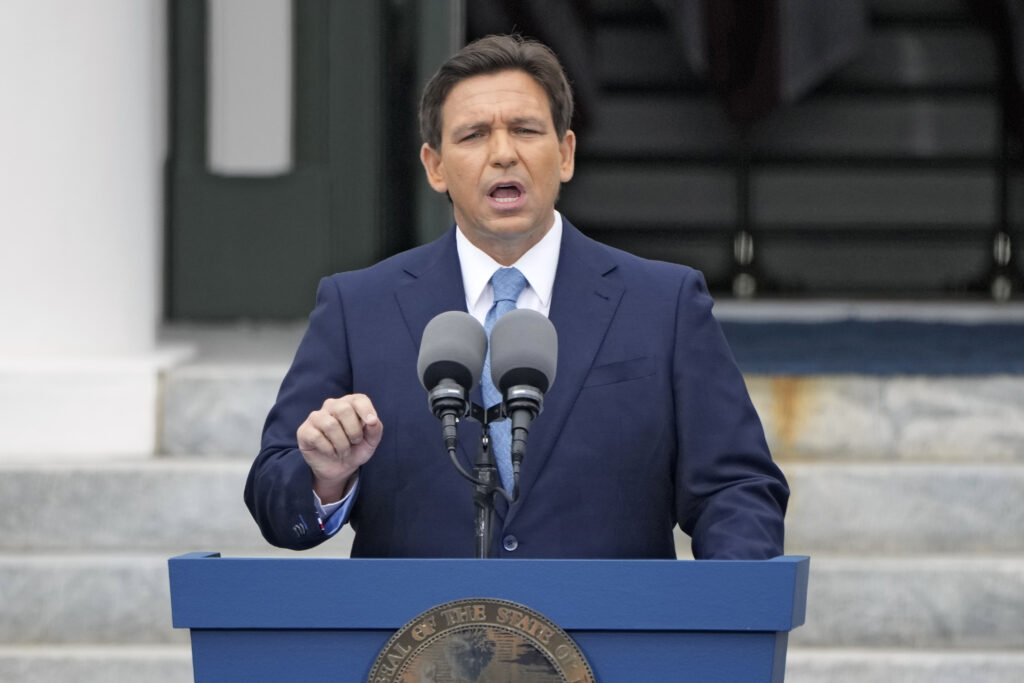Judge Halts Part of Florida Law Attacking Direct Democracy

In a win for Florida voters, a federal court has temporarily blocked some parts of a new state law that makes it much harder for residents to put citizen-led initiatives on the ballot.
Thanks to a recent Supreme Court ruling, the court order only applies to some groups involved in the lawsuit, meaning that the rest of the state is still subject to the law, which went into effect July 1.
Ballot initiatives are a powerful tool of direct democracy that Florida voters have used to get around the legislature and make changes to state law on their own. In 2018, nearly 65% of voters approved a constitutional amendment automatically restoring voting rights to most Floridians convicted of felonies after they completed their sentences.
But Florida’s state leaders have tried for years to take that power away from voters. After the 2018 amendment passed, Gov. Ron DeSantis (R) quickly signed a law undermining the initiative by requiring people to pay off their legal fines before regaining the right to vote.
Earlier this year, DeSantis called on lawmakers to “clean up this out-of-control amendment process.” In March, they passed a law placing a wide range of stumbling blocks in the way of those working to get measures on the ballot.
The new Florida law requires petition circulators – the people who collect signatures – to be U.S. citizens and Florida residents, and it shortens the time period for delivering the signatures. It also includes steep fines and criminal penalties for violating the new rules.
Several advocacy groups that were already working to put initiatives on the ballot in 2026 challenged the law.
The law imposes a $50,000 fine for each person who collects signatures and does not meet the new eligibility requirements. One of the groups bringing the lawsuit estimated it would face a fine of over $20 million under the new law, because many of its signature gatherers are not Florida residents.
The court granted in part one of the motions in June.
On Tuesday, a federal court ruled on the remaining four preliminary injunction motions, blocking the residency and citizenship requirements, as well as the civil and criminal penalties, for some of the plaintiffs.
The court did not block other provisions, including affidavit and disclosure requirements for petition circulations, a three-month moratorium on signature verification and a registration requirement for unpaid petition circulators who gather more than 25 signed petitions.
“Within two months of this law passing, a federal judge has now ruled twice that different parts of it are unconstitutional and violate the constitutional rights of Floridians to participate and have a say in their state’s democracy,” Mitch Emerson, executive director of Florida Decides Healthcare*, a nonprofit organization dedicated to expanding Medicaid in the state, and one of the groups that brought the lawsuit, said in a statement after the ruling. “These rulings tell you everything you need to know about how extreme this law is.”
Other states are also taking steps to gut the power of voters to pass ballot initiatives, including new measures in Arkansas that pro-voter groups are challenging in court. Last year, state supreme courts in Utah and Michigan issued rulings defending direct democracy.
*Florida Decides Healthcare is represented by the Elias Law Group (ELG). ELG Firm Chair Marc Elias is the founder of Democracy Docket.
Yunior Rivas contributed to this report.